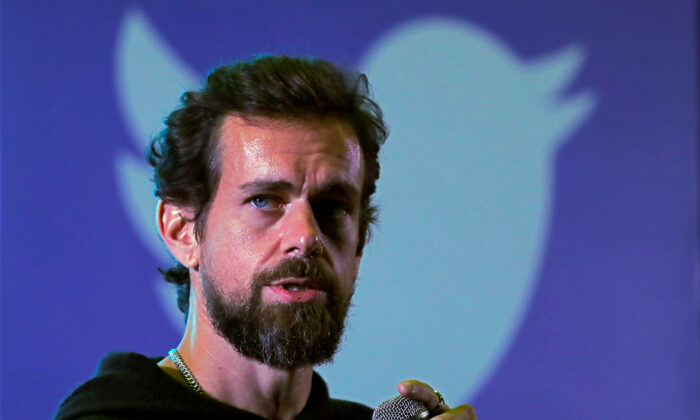Xi Stirs up Nationalistic, Anti-Us Sentiment During Korean War Anniversary Speech
Twitter CEO Jack Dorsey told Sen. Ted Cruz (R-Texas) at a Senate committee hearing Wednesday that Twitter does not have the ability to sway elections because the social media giant is only one platform used to disseminate information.
During the hearing of the Senate Committee on Commerce, Science and Transportation, Cruz pressed Dorsey about whether his company has the power to influence elections.
“No, we are one part of a spectrum of communication channels that people have,” Dorsey said, adding, “people have choice of other communication channels.”
Cruz responded by saying, “if you don’t think you have the power to influence elections, why do you block anything?”
Dorsey replied by saying Twitter has “policies that are focused on making sure that more voices on the platform are possible,” adding that, “we see a lot of abuse and harassment which ends up silencing people and having them leave from the platform.”

The Republican senator then challenged Dorsey on Twitter locking the New York Post’s Twitter account in connection with its report about Hunter Biden’s overseas business dealings. As of Wednesday morning, the NY Post’s account shows that it has not posted since Oct. 14, just hours after it published its first explosive report, citing alleged emails from Hunter Biden and asserting former Vice President Joe Biden’s son tried to arrange a meeting between himself, his father, and a Ukrainian gas executive in Washington.
Biden’s campaign has denied the meeting ever took place, but a whistleblower who had a business partnership with the Bidens later went on record to say Joe Biden was deeply involved in Hunter’s overseas affairs.
“You’re still blocking their posts … can the New York Post post on their Twitter account?” Cruz asked Dorsey during the hearing, prompting the Twitter CEO to reply that the New York Post needs to “log into their account” and “delete their original tweet that fell under our original enforcement actions” before posting again.
“They can tweet the exact same … article and it would go through,” Dorsey said.
During the hearing, Dorsey was joined by executives from Facebook and Google, who said stripping tech firms of Section 230 protections would stifle free speech on the internet and called for alternate regulatory solutions.
While publishers can be held liable for any content they post, social media platforms are protected by Section 230, which states that “no provider or user of an interactive computer service shall be treated as the publisher or speaker of any information provided by another information content provider.”
Section 230 currently allows companies to block or screen content “in good faith” if they consider it “obscene, lewd, lascivious, filthy, excessively violent, harassing, or otherwise objectionable.” But in recent years, the legal protections afforded have been used to shield online platforms that engage in “censoring” or “political conduct,” Attorney General William Barr wrote in a September letter to Vice President Mike Pence and House Speaker Nancy Pelosi (D-Calif.). Barr announced a legislative proposal “to modernize and clarify the immunity” that Section 230 affords to social media companies.
“They no longer function as simple forums for posting third-party content, but use sophisticated algorithms to suggest and promote content and connect users. Platforms can use this power for good to promote free speech and the exchange of ideas, or platforms can abuse this power by censoring lawful speech and promoting certain ideas over others,” Barr wrote.
Some of the proposals include replacing vague terms like “otherwise objectionable” with more specific language “promoting terrorism, promoting violent extremism, promoting self-harm, and unlawful” in order to prevent broad interpretations of the law. The legislative proposals also limit immunity to online platforms that do not abide by their own terms of service or policies.
The tech industry has been resisting efforts to revamp or repeal Section 230, saying that the DOJ proposals could limit people’s ability to express themselves online.
Jack Phillips, Mimi Nguyen-Ly, and Peter Svab contributed to this report.
Focus News: Twitter CEO Says Its Platform Has No Power to Influence Elections
China Insider: Evidence of Genocide Exposed by CCP’s Internal Documents
